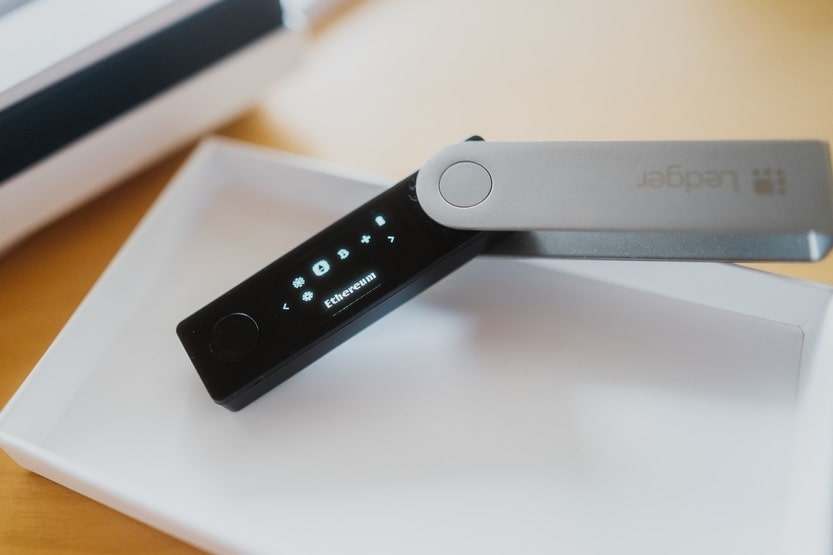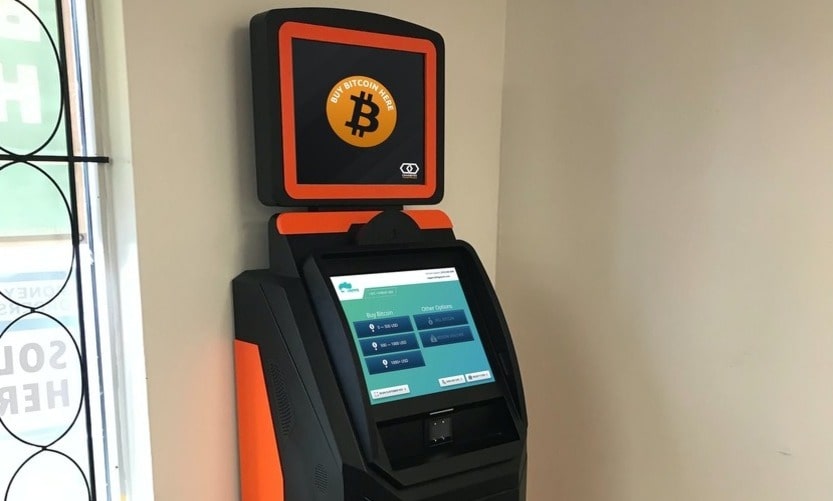In the modern world of cryptocurrency regulation, you can still protect your privacy. How to use bitcoin anonymously? You will definitely have to put extra effort, spend some time and money to cover your identity.
Let’s find out what others may learn about you by having access to your crypto transactions and what are the possible ways to keep your private information out of a public eye.
How anonymous is Bitcoin?
On the one hand, it is entirely anonymous. On the other, it is completely transparent and traceble. How is that possible? Well, there is nothing black and white in this world.
Pseudonymous is a popular word to describe this digital coin.
Why is it so?
Because each user has a public address that theoretically could be traced back to an IP address or exchange account (and by proxy, an actual identity) through proper network analysis.
Another question is, to what extent is Bitcoin anonymous?
It is anonymous in the sense that the components of Bitcoin, such as addresses, private and public keys, and transactions, are all read in text strings, such as a public address, that in no way directly link to anyone’s personal identity. (If an address is used on an exchange that implements KYC — Know Your Customer — then that address may be easily linked to a real-world identity.)
Every bitcoin transaction is publicly broadcasted on the Bitcoin blockchain. Because all transactions are permanent and public, a massive map is being created as time goes on that allows simple analytical tools to paint a picture of where the coins are going. Bitcoin addresses are “anonymous,” but if an address can somehow be linked to a real-world identity, Bitcoin offers no privacy. There are a number of ways to connect addresses to real-world identities, most notably via KYC/AML (Know Your Customer/Anti-Money Laundering) policies at exchanges and blockchain analysis (eg., address clustering).
To be honest, it is fairly easy to trace a wallet address to an individual via an IP address. While an IP address isn’t officially considered Personally Identifiable Information (PII) as it identifies a device rather than a person, it is easy to link it to an individual.
This means that even if you use a different wallet address for each transaction, it wouldn’t be very difficult for someone to find out things like:
- How much BTC you own
- Which items or services you are purchasing
- Who you are sending funds to
I believe you got a basic idea of how crypto transactions work and why it is possible to trace them and link them to you.
How can I hide bitcoin transactions? Let’s review the possible ways that will help you protect your identity.
How to make Bitcoin transactions anonymous?
Anonymous bitcoin wallet
If you decide to store your crypto coins in a private wallet, you never have to provide any personal information. You can easily transfer funds in and out of your anonymous BTC wallet, without having to supply any identification.
However, there is a drawback if you prefer this option. In case you ever have the private key to your crypto wallet, nobody would be able to help you, and you would lose access to all your funds forever.
So what is an anonymous crypto wallet?
Electrum wallet
Electrum is one of the oldest wallets in the market. It is a software wallet that can be downloaded for free and is supported by Windows, Mac, and Linux OS
Although the wallet is free, Electrum makes its money by charging a small transaction fee every time you send payment. The team claims that Electrum is one of the safest software wallets in the industry, as they encrypt all private keys. So, there is a small fee for the safety of your coins, which I believe is fair enough.
Bread Wallet
Bread Wallet is a mobile wallet that can be downloaded for free from the Google Play and Apple stores.
It allows users to send and receive payments using a QR code scanner. So, if you found a store that accepts BTC, you can simply scan the store’s QR code and it will automatically transfer the payment.
Another good feature to Bread is that when transactions are processed, they are sent directly to the Bitcoin blockchain. This is a good security feature because most other wallets need transactions to go through their servers first, before being posted to the blockchain.
Ledger Nano X and Ledger Nano S
Those two are the most popular hardware wallets and they are not free. The Ledger Nano X costs $119 vs $59 for the Nano S. The Nano X connects to iOS devices, while the Nano S only works with desktop computers and androids. They both support multiple coins. However, Nano X is the newest release and also has a slightly larger screen.

And here is one more recommendation for you – never reuse Bitcoin addresses! As it is a massive privacy and security risk.
It makes it easier for blockchain analysis agencies to use heuristics to deanonymize you, as well as others who may have transacted with you.
Most of the popular crypto wallets are HD wallets. That means you can generate any number of receiving addresses and every time you receive coins from anywhere, make sure you use a new address.
Avoid wallets that use Bloom Filters (BIP 37)
Bloom filter is a filter used primarily by SPV clients to request only matching transactions and merkle blocks from full nodes.
Okay, but what does it mean and why are those filters so bad?
Originally those Bloom filters were introduced for security reasons. However, the implementation has lots of systemic flaws.
Without getting too technical and boring, let’s refer to the Breaking BTC SPV security PDF. In this document it states that an attacker could possibly:
- spoof full-nodes
- block SPV requests
- spoof SPV requests
- sniff out SPV requests
- block SPV answers.
Electrum wallet that I mentioned earlier, is a thin-client SPV wallet that uses Bloom Filters, which could be risky to your privacy.
However, if you use Electrum with your own Bitcoin full node or an Electrum personal server, you can mitigate a lot of these risks, especially if your node is run as a Tor hidden service.
Bitcoin tumbling
Bitcoin mixer or bitcoin scrambler or bitcoin washing are solutions (software or services) that let you mix your coins with other users, in order to preserve their privacy.
By mixing your coins, you can obscure the ties between your BTC address and real-world identity to make your crypto transactions private.
If you need an extra layer of anonymity, look into the best bitcoin mixers service such as: MixerTumbler, Anonymix, BitMix, and others.
Anonymous browser
How else can you protect your privacy?
You can use a Tor browser to connect with the Bitcoin network. Tor is a volunteer community that believes in anonymity and surveillance-free internet usage.

Tor nodes encrypt and route your internet traffic to random computer nodes on the Tor network before it reaches its final destination. Hence, it becomes extremely difficult to pinpoint the IP address or system from which the message or transaction was broadcasted.
In simple words, your transactions and other activities couldn’t be linked to your IP. Thus, helps you stay anonymous.
Contrary to popular belief Tor is not the only anonymity network. There are others like I2P,Bitmessage,Zeronet, and Freenet that are engineered towards privacy security and anonymity, although at varying degrees of accessibility to the non-technical users. Brave browser should be your go-to browser. It’s free, faster than Chrome, and has Tor features in-built.
However, if you use a KYC enabled exchange like CEX, Coinbase, or any other, then using Tor or any other similar browser does not make much sense.
VPN
If you aren’t already using a VPN for your day to day internet usage, you should. When a VPN is working as intended, it hides your IP address and encrypts your traffic. That means your ISP and its partners cannot see what websites you are visiting. It also means the websites you visit don’t know your IP address and your location.
At the same time, you should be aware that not all VPNs are reliable. Free VPNs are not worth using. They are usually very slow and not good at protecting your data. Some paid VPNs, such as Avast VPN, even sell your data to third parties, which totally defeats the purpose of a VPN. We suggest you do your own research to find a reliable one with a good history of protecting its customer.
Buy/Sell Bitcoins in Cash
It is a quite common situation when people convert bitcoins to cash anonymously.
How is that possible?
Mainly through P2P platforms like Localbitcoins that allow you to arrange real meetings with BTC sellers. Or you can keep the entire process online.
All you need to do is to find buyers/ sellers in your area, agree on a price, and then exchange the money; without ever meeting. In this case, Localbitcoins.com operates as an escrow service ensuring that both buyer and seller are protected. The escrow service holds the BTC until the payment has cleared and then releases it to the buyer.
It should be noted that Localbitcoins.com isn’t always as anonymous as it seems. While you can create an account using burner email addresses and wallets, its terms and conditions state that it has the right to request you to upload and confirm your identity if they suspect fraudulent activity on your account. Especially if your transactions involve a big amount of money.
There’s also a matter of price. The amount you pay for your coins will vary depending on the current availability and could be higher than found on many online exchanges.
Use anonymous Bitcoin exchanges
If you’re looking to anonymously buy crypto without leaving the house, your best bet is to use a P2P exchange such as Paxful or Localbitcoins.
There’s a range of payment options available, from bank transfer to gift cards and Paypal, and your details will only be disclosed to the seller. If you’re keen to conceal your identity from the seller altogether, it’s conceivable to send funds from an account you control that’s not in your name; a Paypal business accounts for “Acme Trading” for instance, or a Venmo account that a kindly friend will allow you to use.
Use CoinJoin
CoinJoin is an old idea by crypto standards, first proposed by Bitcoin Core contributor Gregory Maxwell in 2013. In essence, the trick is to combine several transactions into one bigger transaction, obfuscating which BTC coins are moving from which sending addresses (“inputs”) to which receiving addresses (“outputs”), exactly.
The CoinJoin proposal fell by the wayside for about four years after it was first proposed. Then, about a year ago, Ádám Ficsór — while working on Breeze’s TumbleBit implementation — rediscovered the proposal and decided to implement it.
CoinJoin is now implemented in Ficsór’s new privacy-focused Wasabi Wallet, which was recently released in beta. Even more recently, privacy-focused Samourai Wallet announced it will soon release a mobile ZeroLink implementation, called Whirlpool. Yet another, newer wallet by the name of Bob Wallet is also developing a ZeroLink implementation.
Join JoinMarket
What to do if you want to play it safe and don’t want to trust a centralized mixer service to anonymize your coins? Then you can try JoinMarket.
This is where BTC owners come together to make special transactions called CoinJoin transactions. This market arranges the right amount of coins at the right time and the right place.
Takers of this market pay a nominal fee to the makers who are ready to mix their coins. The CoinJoin mechanism enables mixing without Escrow or centralized parties.
In this type of transaction, private keys are always under the control of the user.
However, at present, the market is not so popular and there is not much traffic on it.
Another disadvantage, installing the JoinMarket app takes considerable knowledge and time. But if you want to give it a shot, check this link for more information.
Other methods
Bitcoin ATM
Buying crypto from a dedicated cryptocurrency ATM isn’t always the best financial choice. They often use APIs directly linked to cryptocurrency exchanges to purchase coins, and naturally, the ATM operator will add a service fee on the transaction too.
However, they are useful for buying cryptocurrency anonymously.

I would suggest doing your research to pick your Bitcoin ATM carefully as some require you to create an account and reveal your identity. For those that don’t, you can literally rock up, throw some cash in, and get some cryptocurrency out on a paper wallet. You can then send the digital coins to your wallet of choice through a mixer service to further obscure its origin and keep your identity safe.
You should also check CoinATMRadar to find the nearest bATM.
Stonewall
Another CoinJoin-related privacy measure was introduced by Samourai Wallet in May 2018 as a replacement for a similar but inferior solution. Called STONEWALL, the trick doesn’t actually utilize CoinJoin — but makes it seem that it does.
STONEWALL transactions are, in effect, regular transactions. They send BTC from one user to another. However, STONEWALL transactions do something odd: They include an unnecessary number of sending addresses (inputs) and change addresses (outputs). This makes the transaction look a lot like a CoinJoin transaction — a transaction where two people are combining their transactions into one — even though, in reality, it isn’t.
The idea behind STONEWALL is to break (indeed, stonewall) the assumptions that spies presumably make when analyzing the Bitcoin blockchain. If these spies can’t tell for sure whether transactions are really CoinJoin transactions or not, any conclusions based on this transaction data is worthless.
If you are quite techy, check here for more details.
Samourai Wallet will soon also deploy 2-wallet STONEWALL, which are real CoinJoin transactions, shared between two users that trust one another with their privacy.
Run Your Own Full Node
For anyone to make a transaction on the Bitcoin blockchain, they need a wallet that is connected to a Bitcoin node. Bitcoin nodes validate transactions and the blocks that make up the blockchain. If you aren’t running a full node, you are relying on someone else’s node to transmit your transactions to the blockchain.
There are other implications as well. For example, let’s say you use a ledger hardware wallet. If you use Ledger’s out of the box wallet software, Ledger Live, then you rely on Ledger to transmit and receive transactions. Ledger claims they do not tie your name to the serial number of the device. And they also do not collect information about you when you set up Ledger Live. But, they could tie your IP address to your device, and then your privacy is compromised.
Use the Lightning network
The lightning network is a second layer for Bitcoin. Like Bitcoin, there are nodes in the network. But unlike Bitcoin, not every node needs to keep track of every transaction. They only see the transactions that come through them. The only history maintained by a node is its history with the other nodes it transacts with. This makes trading BTC much like keeping an IOU between your friends and then settling up in cash at some point.
The only time the blockchain is involved in this process is when you open or close a channel. “Opening a channel” is the same as agreeing to keep a tab with your friends. When the tab is opened, that information is put into a transaction on the blockchain. This happens again when you settle up the tab.
What this all means is that all of the transactions that happen in between the opening and closing the tab is not on the blockchain. Only you and your friend are aware of it.
Using the lightning network is a great way to increase the privacy of your BTC transactions.
Third-party identity
Finally, there are rumors of individuals paying third parties – homeless; the unemployed; students – to complete KYC on their behalf, and then using their identities to obtain crypto debit cards. If that’s true, they would provide means of purchasing cryptocurrency that cannot be traced back to its actual buyer. There are also rumors of readymade identities being bought on the darknet, and used in the same manner to anonymously buy bitcoin.
Summary
Clearly, it is quite easy to trace Bitcoin. However, it is also possible to hide all the links between you and your identity. And it certainly doesn’t come for free. Besides the financial prices we pay for some anonymity services, we must also sacrifice huge amounts of convenience.
On the other hand, if you really want to cover all your crypto transactions, there are multiple ways to do it.




